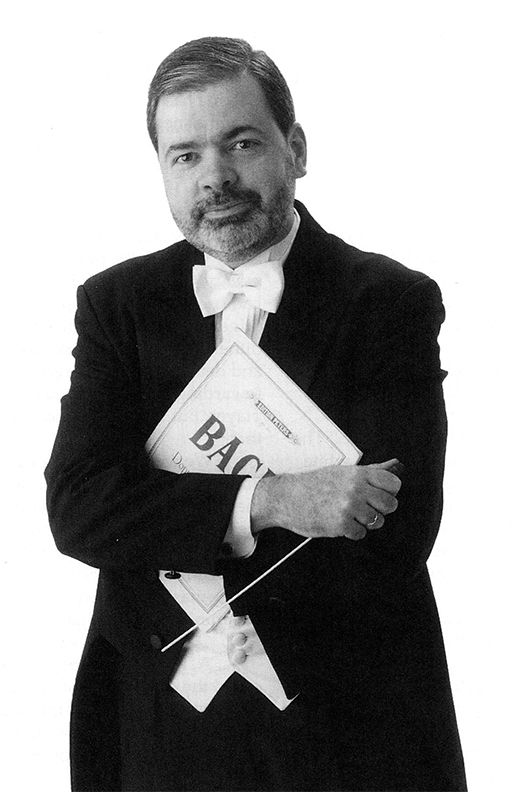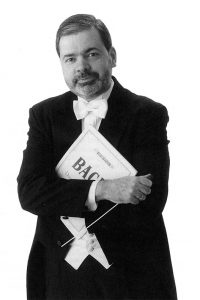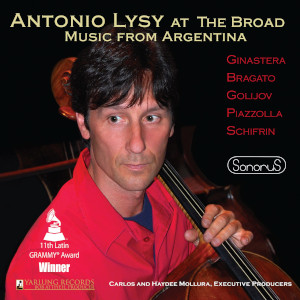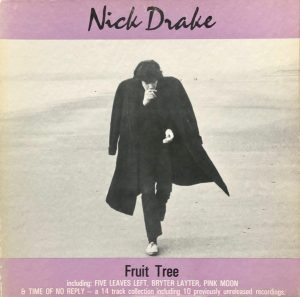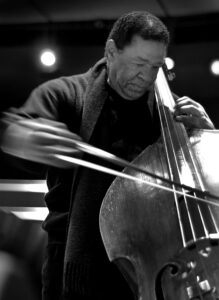Gordon Lightfoot, as a young Church Singer. Courtesy The United Church Observer/Broadview magazine.
Gordon Meredith Lightfoot, Jr. (1938-2023) was a Canadian-born singer-songwriter. By 1965, Lightfoot's songs had been recorded by, among others, Peter, Paul & Mary; Ian & Silvia; the Kingston Trio; Elvis Presley; Bob Dylan; Chad & Jeremy; George Hamilton; the Clancy Brothers; Marty Robbins; Richie Havens; and Judy Collins. And there were the evergreen songs, such as "Early Morning Rain" and "For Loving Me."
Lightfoot's 1970 breakthrough album, his first for Warner Brothers, was originally titled Sit Down Young Stranger. However, it was retitled, owing to the success of the song "If You Could Read My Mind."
That said, Lightfoot's most lucrative song, "Sundown" (1974) was written in the throes of an adulterous affair with a troubled (or troublesome) employee. That affair was characterized by extreme distrust – and occasional violence—on his part. Those episodes were contributed to by Lightfoot's alcohol and cocaine abuse. "Sundown" became Lightfoot's only U.S. Billboard "Top 100" No. 1 hit single. "The Wreck of the Edmund Fitzgerald" (1976), as famous as it was, only reached No. 2.
Perhaps the success of "Sundown" in some way liberated Lightfoot, as he planned his next album, to worry less about writing another hit single. And perhaps that success also moved him toward making a private gesture, intending quietly to repay a long-ago musical debt.
Judging by my research, it is not generally known that, as a child, Lightfoot was a boy-soprano church singer, with impressive classical training. One year, he won the Canadian national singing competition for boy sopranos. Young Gordon's competition showpiece was Franz Schubert's art song "An Sylvia" (literally, "To Sylvia").
Franz Schubert (1797-1828) lived only to the age of 31. But Schubert composed more than 600 art songs; nine symphonies; many major works for piano and for string quartet, and many pieces of chamber music. More than 1,500 works total.
If you want to get an idea of what "An Sylvia" sounds like, HERE is a YouTube of the legendary German tenor Fritz Wunderlich, who died tragically young:
The text for the Lied "An Sylvia" is a German translation by Eduard von Bauernfeld of "Who is Silvia?" from Act 4, Scene 2, of The Two Gentlemen of Verona, by William Shakespeare.
"An Sylvia" is a work from Schubert's most mature period, the time of his 9th Symphony. Darn impressive for a pre-pubescent Canadian boy to stand up alone in front of a bunch of strangers and sing, in German. And win.
Lightfoot's breakthrough album If You Could Read My Mind included a song that was subtitled "Song for Steven Foster" (title: "Your Love's Return.") Therefore, by the time he wrote "Sundown," Lightfoot had already written an homage to the songwriter who he felt had most strongly influenced him.
My thesis is that, after the success of "Sundown," Lightfoot undertook to do the same for Schubert. After all, Schubert's "An Sylvia" had been young Gordon's ticket to the Big Time.
Cold on the Shoulder
Lightfoot's follow-up album to the album that had contained the hit single "Sundown" was entitled Cold on the Shoulder. The song I think is an unrecognized "Gordon Lightfoot Schubert Homage" is entitled… of all things, "Rainbow Trout."
Really, need I say more?
Lightfoot's "Rainbow Trout" is an "Ichthyomorphic Ballad of Found-and-Lost, Been-and-Gone, Never-Quite-True, Love"!
And, Lightfoot's "Rainbow Trout" is obviously patterned after one of Schubert's most famous art songs!
(Spoiler Alert: The name of that Schubert art song is "Die Forelle": "The Trout.")
If the word "Ichthyomorphic" has got you flummoxed: It really is a real word; it's the Fishy Equivalent of the word "Anthropomorphic," which means "Human-Like."
Example: "Bugs Bunny" was an Anthropomorphic animal cartoon character. Bugs was a rabbit; but Bugs walked on his hind legs, and he spoke English rather well.
Here are Lightfoot's "Rainbow Trout" lyrics:
Rainbow Trout
Gordon Lightfoot
[Verse 1]
In the name of love she came
This foolish winsome girl
She was all decked out like a rainbow trout
Swimmin' upstream in the world
[Chorus]
And she said, "Please, please, I've lost my way
The current is too strong
In the name of love, kind sir I pray
In the name of love"
[Verse 2]
So I took her by the hand
She took me by the will
She was all dolled up like a blue-eyed pup
Looking fer something to spill
[Chorus]
And she said, "Please, please, I've lost my way
The current is too strong
In the name of love, kind sir I pray
In the name of love"
[Verse 1]
In the name of love she came
This foolish winsome girl
She was all decked out like a rainbow trout
Swimmin' upstream in the world
And she said, "Please, please, I've lost my way
The current is too strong"
And she gave one flip of the rainbow tip of her tail
And she swam back down
And she said, "Please, please, I've lost my way
The current is too strong
In the name of love, kind sir I pray
In the name of love" [3X]
©1975, Moose Music (CAPAC)
Looking at those lyrics, I can only conclude that Lightfoot's general education must have included exposure to Elizabethan drama and poetry. The phrase "In the name of love, kind sir I pray," did not come down during a meteor shower. Nor did the Northern Lights spell it out. No. Not at all. It is also known that, although not a Catholic, the young Lightfoot studied Latin. Bravo.
Gordon Lightfoot's song is obviously about one of Gordon's young, female, human love interests. But to make his (passive-aggressive, self-pitying) points, Lightfoot invests her with fishy attributes.
The lyrics make plain that she is not actually a fish. Lightfoot just chooses to claim that she is, in some respects, just like a fish:
In the name of love she came
This foolish winsome girl
She was all decked out like a rainbow trout
Swimmin' upstream in the world
So, she's a girl; and she has dressed up for the occasion.
And, Lightfoot assumes that she is hoping to, in some way, better her circumstances. (But perhaps that was only in your mind, Gord.)
At this point, I should clarify that I have never claimed that there was a strictly musical debt or a musical resemblance to Schubert's music—as in, Do-Re-Mi. Or even, keys or harmonies.
The similarities and parallels are in the lyrics, the cast of characters, the action, and the drama.
One of my contentions is that Lightfoot might have been more familiar with the background and composition of Schubert's "Trout" song than most music lovers of today are. And, I think that shows in his song. Lightfoot was amazingly well-educated, for a hick from the remote rural sticks of Canada.
But part of me also thinks that perhaps it was precisely because there was just not that much to do in Orilla, Ontario, in the 1940s and 1950s (other than go to church and to the Cub Scouts), was the reason the young Gordon had the free time to absorb so much music, so deeply.
I might be wrong, but it seems to me that if an 11-year old boy in New York City today could sing as convincing a performance of "An Sylvia," he'd be on track for a place at the Juilliard School's Pre-College Division.
Back to Schubert.
Franz Schubert set, as a song, a poem called "The Trout" ("Die Forelle"), by a chap named C.F.D. Schubart. Later, a patron asked Schubert to use the theme from Schubert's song "The Trout" as the theme for a variations movement within a chamber-music piece that the patron had commissioned. That piece today is quite famously known as the "Trout Quintet."
If your Musical Curiosity knows no boundaries:
HERE is a link to a legendary performance of Schubert's "Trout" song setting; and HERE is a link to the chamber-music instrumental variations.
By the way, while searching for good YouTube examples, I had no choice but to discover that, at some point, Samsung, in its infinite wisdom, decided that rather than using the usual buzzer sound to announce that its clothes-washing machine had reached the end of its cycle, the washing machine would play a one-line, synthesizer musical excerpt from… Schubert's "Die Forelle." Hey—it's in the public domain, so no royalties are owing. How could they resist? There are dozens of YTs about this.
Schubart's poem has four stanzas. But Schubert changed the focus by setting only three stanzas, omitting the fourth. That is so hugely important!
Schubert's song is told from the standpoint of an onlooker who is watching a fisherman who, in the onlooker's judgment, is unfairly catching a lovely trout, by muddying the waters.
The music for the first two stanzas moves along moderately and evenly, the piano figurations representing a bubbling brook. But Schubert's final stanza is agitated, reflecting the trout's struggles.
Fascinatingly, the stanza that Schubert omitted reveals that the tale of the angler and the trout is actually a moral fable. The "moral of the story" is that young ladies should be on their guard against the young men who are trying to hook them:
You, who dwell by the golden spring
of secure youth,
Remember the trout.
If you see danger, flee!
You usually fail only from lack of wisdom.
Maidens, watch out for the seducers with fishing rods!
(This non-metrical translation is by me. If a native speaker wants to quibble, have at it. I prioritized clarity of meaning over poetic flow. And yeah, there might be a bit of Phallic Symbolism going on there. Rods.)
Schubert might have omitted the fourth stanza because he did not want to shift the focus and "Break the Fourth Wall." Schubert left the poem as a melancholy vignette of human cruelty inflicted upon an innocent animal. Schubert did not want to turn the camera around.
However, the poet had an important message, a message that Schubert chose to ignore:
Girls; be prudent, don't get caught.
While Lightfoot's "Rainbow Trout" song is not that kind of moral fable, I think there is no question that in Lightfoot's song, the rainbow trout's beauty is a metaphor for the enrapturing beauty of a shy (or coy; or, calculating) young lady.
And, because we are, after all, dealing with Gordon Meredith Lightfoot, Jr., Gordon had no choice other than to invite all of us to his own "Personal Pity Party," by claiming that she (not he) was at fault; and that he is the innocent (and now suffering) victim.
Schubart's poem, in its fullness, counseled young women against getting hooked by "anglers."
However, in Lightfoot's little world:
So I took her by the hand
She took me by the will
Meaning: Gordon was honest and forthright; but she was manipulative.
Then comes the denouement:
And she said, "Please, please, I've lost my way
The current is too strong"
And she gave one flip of the rainbow tip of her tail
And she swam back down
Therefore, she had always been in charge; and, to boot, she was arbitrary, capricious, and cruel.
I'd really love to hear her side of that story!
I feel an obligation to note that, judging at least by its conspicuous lack of cover versions (that would be: Absolute Zero) and lack of references in the literature, Lightfoot's "Rainbow Trout" was an epic flop. If there is another Lightfoot song with so few covers, please let me know.
My guess is that those who could not connect the dots between Lightfoot and Schubert were left, in the event, clueless. I cringed a bit when I read Nicholas Jenning, Lightfoot's most fastidious biographer, (literally) write off "Rainbow Trout" as:
With a dull melody and such mawkish, simplistic lines […]
"Rainbow Trout" was a rare example of Lightfoot at his worst:
lazy and uninspired.
Despite and still:
I think that there can be no question that Gordon Lightfoot's "Rainbow Trout" was his personal homage to Franz Schubert. Lightfoot was paying off the debt of his national-competition win.
At the end of the day, I think "Rainbow Trout" is a song well worth your attention, and your remembering.
Sources Include:
Jennings, Nicholas. Lightfoot. Toronto: Penguin Random House Canada, 2017, pp. 18-20; 141.











